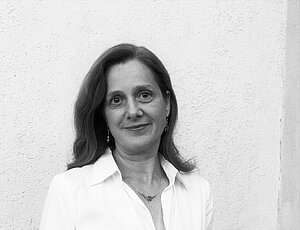Dr. Elisabeth Sobieczky, Austria

1. Could you please describe your academic/ professional career in a few words?
After my graduation from JMU in 1998, I carried out my PhD at TU Berlin, where I participated in the research training group “Aesthetics – Architectural Research – Historical Monument Conservation” founded by DFG (German Research Foundation) from 1999-2002. I’ve been working in the museum sector in Germany and in Austria until 2006, followed by a postdoc position as Research and Teaching Assistant at the University of Graz from 2006-2012. I’ve then been living in the U.S., where I worked for a company as a linguistic consultant, lectured at the University of Colorado at Boulder, and started to volunteer in the cultural heritage preservation field. In 2015 I returned to Austria and have since been teaching at the Academy of Fine Arts Vienna, the University of Vienna, and the Danube University Krems.
2. What do you find most fascinating about your home country?
For me, the most fascinating aspect about Austria is its cultural richness and diversity, which can be explored in the cities as well as in the country side.
3. Do you have any experience regarding a scientific or economic exchange between your home country and countries of the European Union?
By volunteering for a NGO active worldwide in the field of cultural heritage preservation I’m involved with developing educational programs and with searching for possibilities to cooperate with university departments. Some of the sites we are currently working on are located in Europe.
4. What do you think about the importance of Alumni in terms of the cultural, academic and economic exchange?
Nowadays, in a globally connected world, international exchange is very important. I believe that the Alumni network can foster this exchange also on a more personal level, which is closer connected to the participants’ professional lives. Alumni might share similar as well as very different professional experiences, depending on culture, academics, and economics of the respective country they are living and working in. Therefore, meeting and discussing might help to gain fresh insights and viewpoints on various topics, hopefully resulting in better co-operating on an international level.


